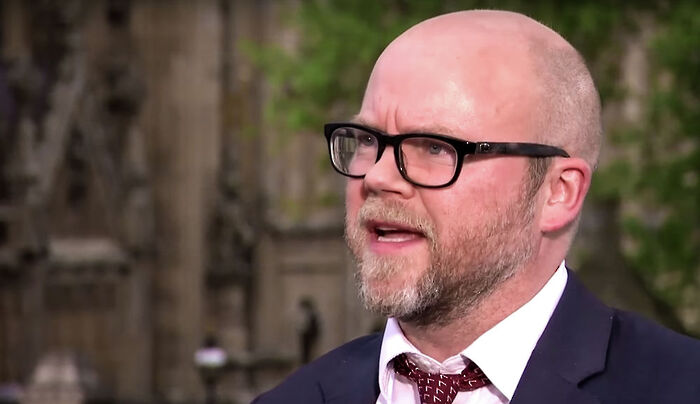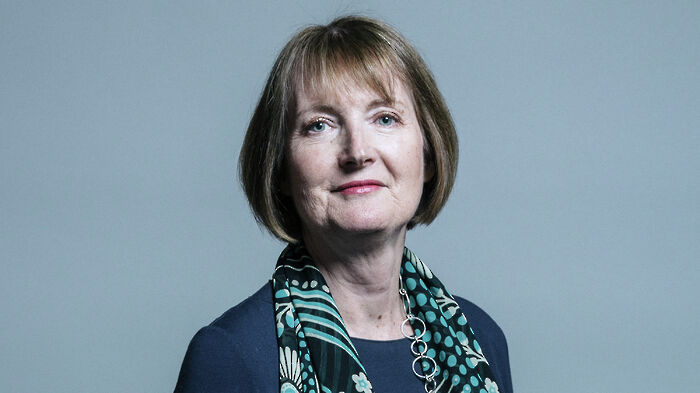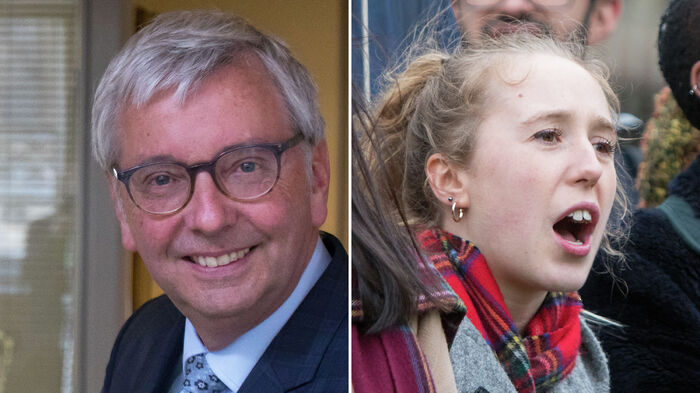NUS Conference 2018 – everything you need to know
Varsity explains the ins and outs of the annual National Union of Students conference ahead of today’s elections

The annual conference of the National Union of Students (NUS) kicked off yesterday in Glasgow, covering a period of three days: from the 27th to the 29th of March.
At this year’s conference, 29 executive positions are open for election – 6 full-time officer positions, including the role of president, and 23 voluntary committee roles.
The conference is split into four “zones”: welfare, union development, education, and society & citizenship. Within each of these categories delegates across the country have submitted policy motions to be discussed and voted on.
Each of the zones is headed by a full-time vice-presidential officer elected at the annual conference, with this role split into two in the case of education, where different representatives exist for higher education and further education.
The following executive positions are up for election:
- NUS president
- 5 vice-presidential roles, divided into: welfare, union development, society & citizenship, higher education, further education
- 15 National Executive Council members, the ‘Block of 15’
- 4 NUS UK directors
- 4 Democratic Procedures Committee members
How does voting work?

Votes in the NUS elections are cast by delegates, who are in turn elected by students at their universities and colleges. Each student union affiliated with the NUS gets a number of delegates based on its number of part-time and full-time students.
Cambridge’s delegates were elected in November. Connor MacDonald, Miriam Gauntlett, Angus Satow, Carine Valarché and CUSU Women’s Officer Lola Olufemi have joined CUSU president Daisy Eyre, who was selected automatically, in representing the University of Cambridge at this year’s conference.
In addition to voting for presidential and vice-presidential roles, delegates are responsible for the election of 15 members of the National Executive Council (NEC) – commonly known as the ‘Block of 15’. Of these, five positions are reserved for Further Education candidates and 50% are reserved for candidates who self-define as women. Multiple vote counts take place to ensure representation.
Delegate elections are notorious for their low turnouts. Last year in Cambridge a total of 1,696 students cast votes for NUS delegates – more than double the turnout of the previous year – representing just over 7% of the 23,803 eligible voters.
Which elections should I watch out for?

Three candidates are battling for the role of NUS President. The candidates seeking election are Sahaya James, a socialist feminist seeking to “radically overhaul” the NUS; King’s College London Students’ Union president Momin Saqib, hoping to rid the NUS of its “internal political turmoil”; and the incumbent Shakira Martin, running for re-election to “get real” about the movement she has led in the past year.
The presidential contest sees former friends become rivals. Martin and James were allies on the left of the NUS until Martin moved towards the centre during her tenure as vice-president for further education, after which she was elected president.
This election comes amid significant conflict at the core of the NUS, with Martin having recently been accused of creating an atmosphere of bullying, allegations she vehemently denied, claiming they were sparked by the fact that she is “a black, working-class woman” and motivated by those seeking to tar her name in the run-up to the elections.
Perhaps of particular note to Cambridge students, last year’s CUSU president, Amatey Doku, is running for re-election as vice-president for higher education against Ana Oppenheim, an LSE student and NUS National Executive Council member who is involved with the National Campaign Against Fees and Cuts (NCAFC), a far-left organisation made up of activist students and workers in the education sector.
An ally of incumbent president Shakira Martin, Doku has attempted to build a good reputation among fellow students and activists over the past year through engaging with government figures and delivering articulate performances on television.
Doku and Martin’s approach of working for reform alongside the government faced a significant setback recently when not a single NUS representative was appointed to the board of the new higher education regulator – the Office for Students (OfS) – sparking significant controversy surrounding the OfS’s appointment procedure.
According to Cambridge delegate Angus Satow, the election of the vice-president for welfare is of particular significance this year, because in his view “the issue of welfare needs urgent politicisation.” He endorses Eva Crossan Jory, Goldsmiths SU President, for this role, citing her “amazing track record” and commenting that her manifesto offers “exactly the change the Welfare Zone needs”.
Which motions should I watch out for?

With a 186-page document outlining the motions submitted, there is no shortage of different issues to be addressed at this year’s conference. Ranging from Brexit to freedom of speech, motions have come from students’ unions affiliated with the NUS as well as committees for the different conference ‘zones’.
One of the key issues discussed thus far is the Black Attainment Gap, with a motion submitted outlining methods to address this. CUSU women’s officer Lola Olufemi argued at the conference that we should work to tackle the Black Attainment Gap as a “pervasive issue”, rather than simply viewing it as something that can be tackled through the Teaching Excellence Framework (TEF). Her proposed amendment to make this explicit in the original proposal was passed.
Several significant motions, particularly in the Welfare and Union Development zones focus on politicising the student movement, often attempting to place it in firm opposition to the Conservative government. Every single Cambridge delegate voted in favour of the motion titled ‘Our Unions have, and always will be, Political’.
The NUS has faced criticism regarding its response to the recent UCU industrial action, taking ten days to issue a response, with Laura Lunn-Bates, a candidate for the ‘Block of 15’, tweeting that the NUS “has literally done nothing to help students on strikes”. In this regard, the ‘NUS Supports the UCU Strike’ motion may provide a clearer commitment to activism, offering a renewed allyship between students and striking staff.
Freedom of speech has become a hot button issue at universities, with some expressing concerns exhibited in the motion to “Affirm [the] Conference’s Commitment to Freedom of Speech” surrounding the use of no-platforming and safe spaces. Yet others have accused people of using freedom of speech to defend their bigotry and offensive language. Discussing this motion, former CUSU women’s officer and current postgraduate NUS representative, Amelia Horgan, tweeted “freedom of speech absolutists have no understanding of language or power”.
How are my representatives voting?

Cambridge’s delegates represent a spectrum of political opinion, with several far-left delegates joining former Cambridge University Conservative Association (CUCA) chairman (and recent CUSU presidential candidate), Connor MacDonald. While most of the delegates are experienced in student politics, particularly current CUSU women’s officer Olufemi, Valarché ran an anti-establishment campaign, promising not to be a “CUSU fuckboi”.
On a Facebook event page titled ‘CUSU Attends NUS National Conference 2018’, the delegates claim to “be guided by their manifestos, personal convictions, and CUSU’s existing policy.” During the election, Cambridge’s delegates promise to regularly update a public spreadsheet with their voting record, “ensuring full accountability to you”.
All six of Cambridge’s delegates were unanimous in their stances on the four motions in the ‘Priority Zone’, voting in favour of proposals to address student poverty, including by resolving to lobby for Student Finance England and similar bodies to pay student loans in advance of course start dates.
MacDonald appears to vary most from the other Cambridge delegates in his voting record, the only one to abstain from the motion to tackle the black attainment gap.
Speaking to Varsity, Angus Satow said that he had not yet made a “definitive decision” regarding the presidential election, but noted that “voting for Shakira Martin would be incompatible with the manifesto for free education on which I was elected.”
Satow explained: “During her tenure Martin has opposed the national demonstration for free education; taken ten days to come out in support of the UCU strikes; and generally been more of a hindrance than a help to the student movement.”
Discussing non-presidential elections, Satow expressed a belief that “the incumbent candidates, with the exception of Ali Milani, are responsible for a failed system.” Satow said that incumbent former CUSU president Amatey Doku’s strategy of “appeasing a Conservative government” in his role as vice-president for higher education has “weakened the student movement in its acceptance of marketisation” and affirmed that he therefore plans to vote for challenger Ana Oppenheim.
According to Satow, the NUS “needs an urgent change of direction – from a distant and self-interested clique, which mistakes lobbying for politics, to a grassroots movement which empowers students to fight for radical change.”
Meanwhile CUSU President Daisy Eyre wrote on Facebook: “As our National Union of Students, I believe that NUS should be fighting for student rights and especially for the rights of marginalised students, representing the interests of those currently let down by society and by the higher education system. This needs urgent action so I will be voting for policies that put this at the forefront of NUS action.”
Similarly, in an “accountability post” on Facebook, Lola Olufemi spoke of the “liberation platform” on which she ran for election, saying that she will vote for candidates who “demonstrate concrete experience of pushing for meaningful change in their own institutions and the student movement as a whole”. Olufemi emphasised that the NUS “has the potential to be a credible organising body”, citing this as one of her top priorities as a delegate.
Tweeting from the conference, Olufemi expressed dismay at the attitude of incumbent president Shakira Martin towards the recent UCU industrial action.
Strange to hear the NUS President claim that her response to the strikes was anything more than disappointing. Students organised in spite of the silence from NUS leadership, not because of it. #NUSConference #NUSNC18
- Lola Olufemi (@CUSUWO) March 27, 2018
Perhaps the most popular of all candidates among Cambridge delegates – Eva Crossan Jory, candidate for vice-president of the welfare zone – has been endorsed by Satow, Olufemi and Gauntlett. Gauntlett yesterday posted a photograph on Facebook of herself and Olufemi proudly donning ‘Eva for Welfare’ t-shirts, alongside a lengthy caption in which she said she is “really impressed and heartened by [Crossan Jory’s] collective and communal policies for mental health action combined with a fight against marketisation.” Meanwhile, in a separate post, Olufemi stated: “Eva is the only candidate I trust to take the idea that welfare is political seriously.”
Olufemi was one of Crossan Jory’s original nominees. She also nominated Zamzam Ibrahim for NUS vice-president for society & citizenship. Olufemi publically endorsed Ibrahim on Facebook, writing “Zamzam is not only a committed activist, she’s experienced doxxing by the press and wants to ensure that no student activist endures the same thing by creating a media response unit and issuing guidelines to SUs. In a climate where BLACK AND BROWN students are routinely silenced in this way, this central policy cannot come soon enough.”
 Music / The pipes are calling: the life of a Cambridge Organ Scholar25 April 2025
Music / The pipes are calling: the life of a Cambridge Organ Scholar25 April 2025 News / Candidates clash over Chancellorship25 April 2025
News / Candidates clash over Chancellorship25 April 2025 Interviews / Dr Ally Louks on going viral for all the wrong reasons25 April 2025
Interviews / Dr Ally Louks on going viral for all the wrong reasons25 April 2025 News / Cambridge professor paid over $1 million for FBI intel since 199125 April 2025
News / Cambridge professor paid over $1 million for FBI intel since 199125 April 2025 Comment / Cambridge builds up the housing crisis25 April 2025
Comment / Cambridge builds up the housing crisis25 April 2025









